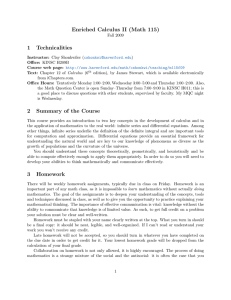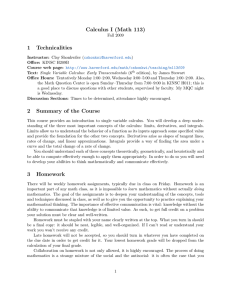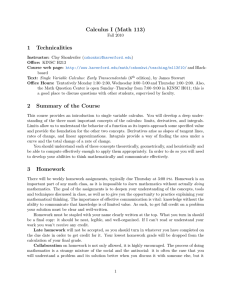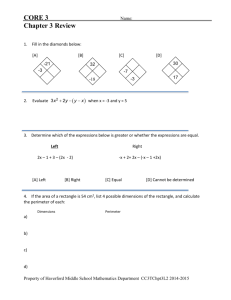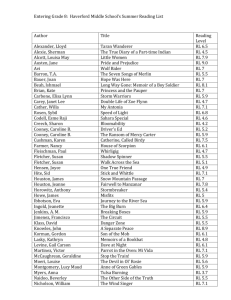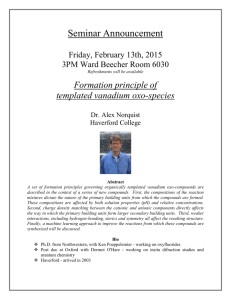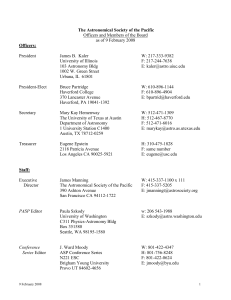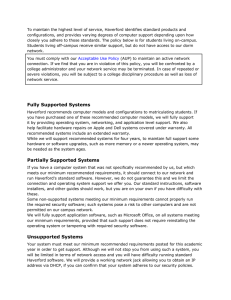Linear Algebra (Math 215) 1 Technicalities
advertisement
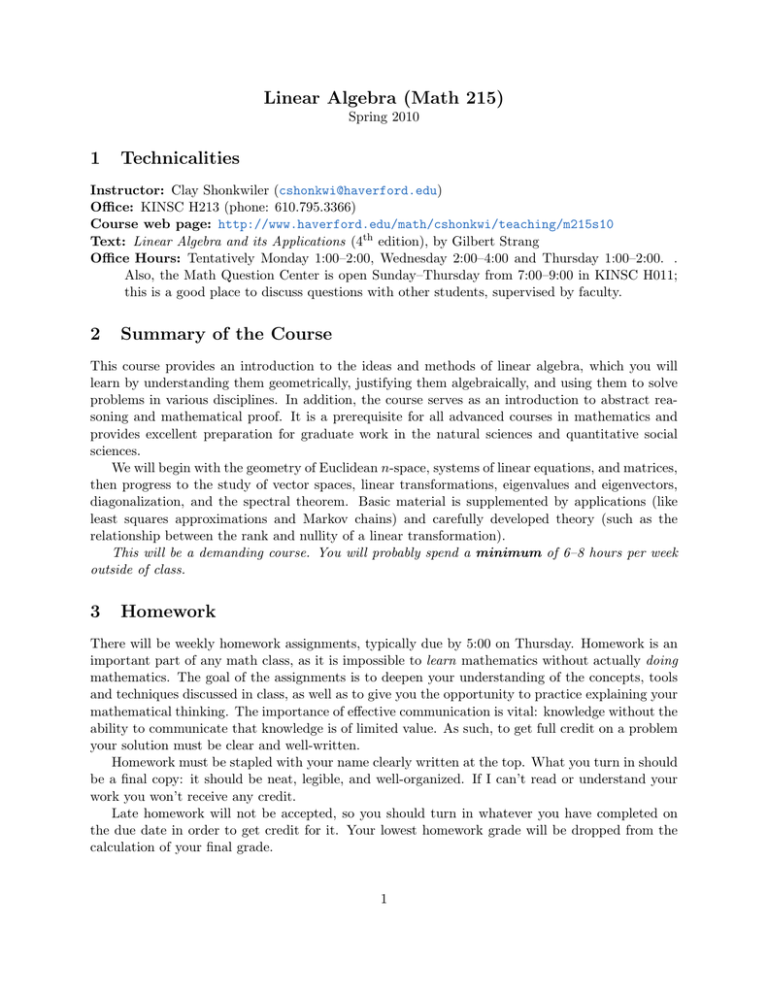
Linear Algebra (Math 215) Spring 2010 1 Technicalities Instructor: Clay Shonkwiler (cshonkwi@haverford.edu) Office: KINSC H213 (phone: 610.795.3366) Course web page: http://www.haverford.edu/math/cshonkwi/teaching/m215s10 Text: Linear Algebra and its Applications (4th edition), by Gilbert Strang Office Hours: Tentatively Monday 1:00–2:00, Wednesday 2:00–4:00 and Thursday 1:00–2:00. . Also, the Math Question Center is open Sunday–Thursday from 7:00–9:00 in KINSC H011; this is a good place to discuss questions with other students, supervised by faculty. 2 Summary of the Course This course provides an introduction to the ideas and methods of linear algebra, which you will learn by understanding them geometrically, justifying them algebraically, and using them to solve problems in various disciplines. In addition, the course serves as an introduction to abstract reasoning and mathematical proof. It is a prerequisite for all advanced courses in mathematics and provides excellent preparation for graduate work in the natural sciences and quantitative social sciences. We will begin with the geometry of Euclidean n-space, systems of linear equations, and matrices, then progress to the study of vector spaces, linear transformations, eigenvalues and eigenvectors, diagonalization, and the spectral theorem. Basic material is supplemented by applications (like least squares approximations and Markov chains) and carefully developed theory (such as the relationship between the rank and nullity of a linear transformation). This will be a demanding course. You will probably spend a minimum of 6–8 hours per week outside of class. 3 Homework There will be weekly homework assignments, typically due by 5:00 on Thursday. Homework is an important part of any math class, as it is impossible to learn mathematics without actually doing mathematics. The goal of the assignments is to deepen your understanding of the concepts, tools and techniques discussed in class, as well as to give you the opportunity to practice explaining your mathematical thinking. The importance of effective communication is vital: knowledge without the ability to communicate that knowledge is of limited value. As such, to get full credit on a problem your solution must be clear and well-written. Homework must be stapled with your name clearly written at the top. What you turn in should be a final copy: it should be neat, legible, and well-organized. If I can’t read or understand your work you won’t receive any credit. Late homework will not be accepted, so you should turn in whatever you have completed on the due date in order to get credit for it. Your lowest homework grade will be dropped from the calculation of your final grade. 1 Collaboration on homework is not only allowed, it is highly encouraged. The process of doing mathematics is a strange mixture of the social and the antisocial: it is often the case that you will understand a problem and its solution better when you discuss it with someone else, but it is also essential that you work through the details on your own so that you don’t use another’s understanding as a crutch. As such, you should follow these guidelines when collaborating: • You must work on each problem on your own before discussing it with your collaborators. • When discussing a problem with your collaborators, you should work on a white board, a blackboard, or a colored sheet of paper. • You should write up your solution separately from your collaborators and without reference to the white board, blackboard, or colored paper containing your joint work so as to communicate your own understanding of the problem. • You must indicate with whom you collaborated on your homework. Who you work with may change from problem to problem, so please note your collaborators separately for each problem. Online or other outside resources are not allowed unless you have received my permission ahead of time. Please contact me if you have any questions; you may also want to refer to the math department’s guidelines on collaboration (http://www.haverford.edu/math/collaboration.html). 4 Exams: There will be two midterm exams and a final. The midterms are tentatively scheduled for February 26 and April 16; the final will be self-scheduled. 5 Grading Your final grade in the course will be determined by: Homework: 15% (lowest dropped) Midterms: 25% each Final: 35% 6 Additional help If I were a perfect teacher, you could learn everything you need to know just by going to class. Unfortunately, I am not a perfect teacher, so there’s a good chance that, at some point, you’ll find yourself confused, stuck or otherwise frustrated by the material or the course. If you do, ask for help! Office hours are, of course, an excellent venue for this, but if you feel uncomfortable asking my help or if you find that my teaching style and your learning style simply don’t mesh, there are many other resources available to you. First and foremost, your fellow classmates are a great resource. Odds are that, for any question you have, there’s someone in the class who can answer it, so don’t be afraid to ask. Even the simple process of explaining why you’re stuck to someone who is just as confused as you is often enough 2 to make things clearer. Just be sure to return the favor when you get the chance to help someone else. Second, the Math Question Center is open Sunday–Thursday from 7:00–9:00 in KINSC H011 and is a great place to ask questions of your fellow students, of math majors or of professors. Third, Haverford’s Office of Academic Resources coordinates peer tutoring, which is available to you in unlimited quantities free of charge. To connect with a tutor, visit the Peer Tutoring website: https://www.admin.haverford.edu/deans/tutoring/tutor.html If none of the above is suitable or practical, please let me know and I’ll be happy to help you find additional resources. 7 Accommodations If you think you may need accommodations in this course due to the impact of a disability please meet with me privately as soon as possible. You should also contact Rick Webb, Coordinator, Office of Disabilities Services (rwebb@haverford.edu, 610-896-1290) to confirm your eligibility for appropriate accommodations. Doing so early in the semester will help prevent unnecessary inconvenience. 3
